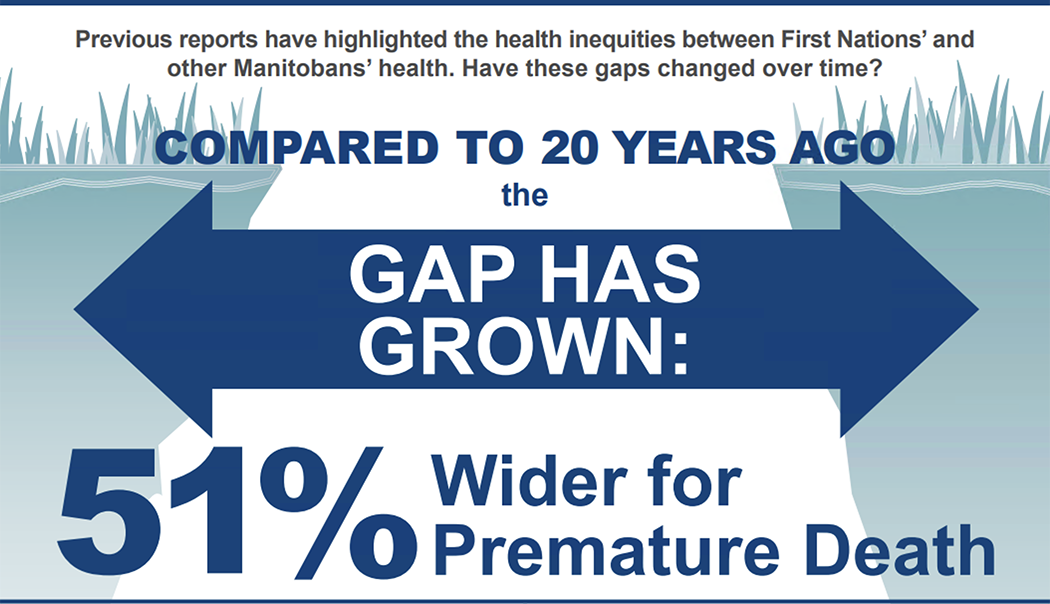
Health of First Nations people in Manitoba worsened compared with other Manitobans
Over the past 20 years, the health of First Nations people in Manitoba has worsened, according to key health and health care indicators, found new research in the Canadian Medical Association Journal (CMAJ).
“These health disparities are understood to be part of the continuing impact of colonization and genocidal policies aimed specifically at Indigenous people,” writes Dr. Alan Katz, Manitoba Centre for Health Policy (MCHP) and Family Medicine, Rady Faculty of Health Sciences, University of Manitoba, Winnipeg, Manitoba, with coauthors.
The Truth and Reconciliation Commission of Canada has highlighted the striking health disparities between Indigenous and non-Indigenous populations in the country and calls for action to close the gap.
Manitoba has the highest percentage by population of First Nations peoples of all Canadian provinces.
Researchers from the First Nations Health and Social Secretariat of Manitoba and MCHP at UM looked at linked health data on nearly all Manitobans (more than 99 per cent) registered for provincial health insurance in 2016 during the periods from 1994-95 to 1998-99 and 2012-13 to 2016-17 totalling 140,910 registered First Nations individuals and 1,204,641 other Manitobans. They found that average life expectancy for First Nations people declined but increased for other Manitobans, and other health indicators also worsened.
Some findings:
- The relative gap for premature death between First Nations and all other Manitobans widened by 51 per cent
- For First Nations men, the relative gap in years of life lost increased by 32 per cent
- The absolute gap in life expectancy between First Nations and all other Manitobans increased from about eight years to about 11 years over time
- Despite higher rates of hospitalizations and more days in hospital for First Nations people, First Nations people had a higher decrease in visits to primary care compared with other Manitobans, suggesting barriers to accessing care.
“These findings indicate that efforts to improve health outcomes among Indigenous people have been insufficient and should provide impetus for renewed action. The Canadian health system must recognize the needs of First Nations, reported here and in many other studies, and take specific actions to decolonize health care, as determined by First Nations,” the authors urge.
Read the full study, Changes in health indicator gaps between First Nations and other residents of Manitoba.






